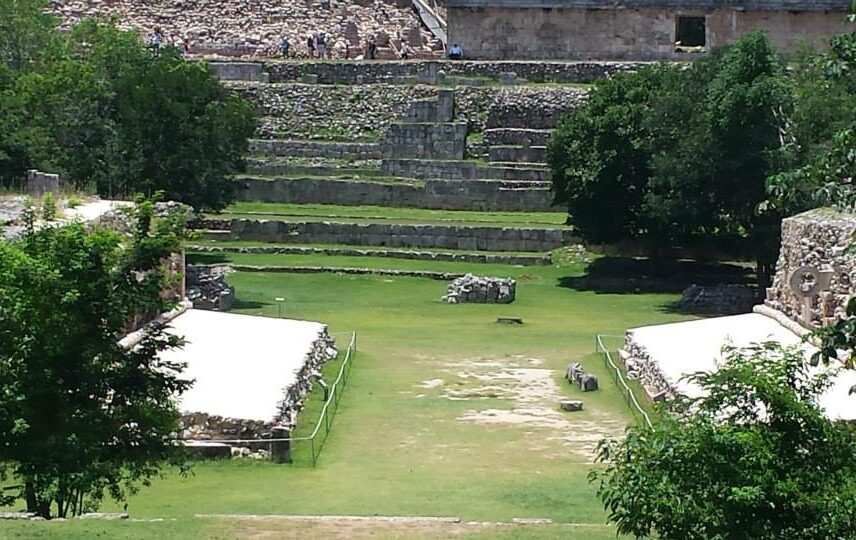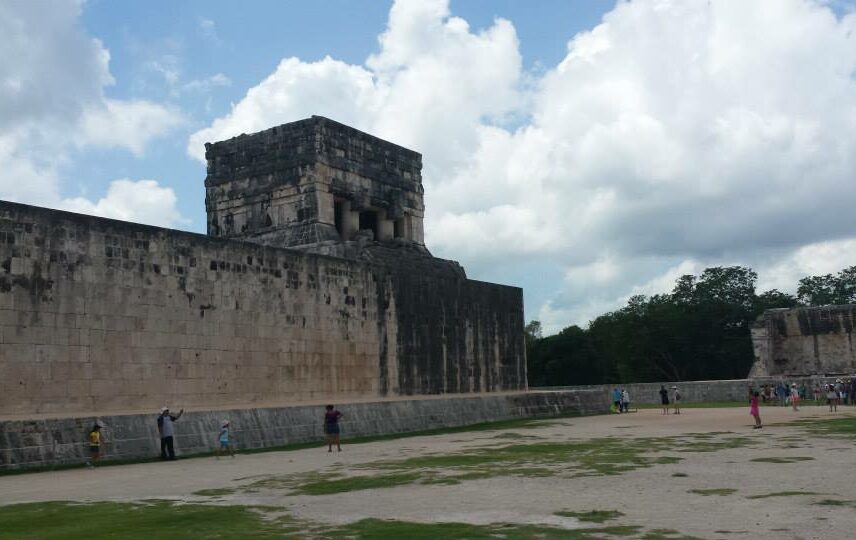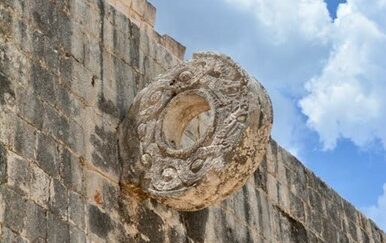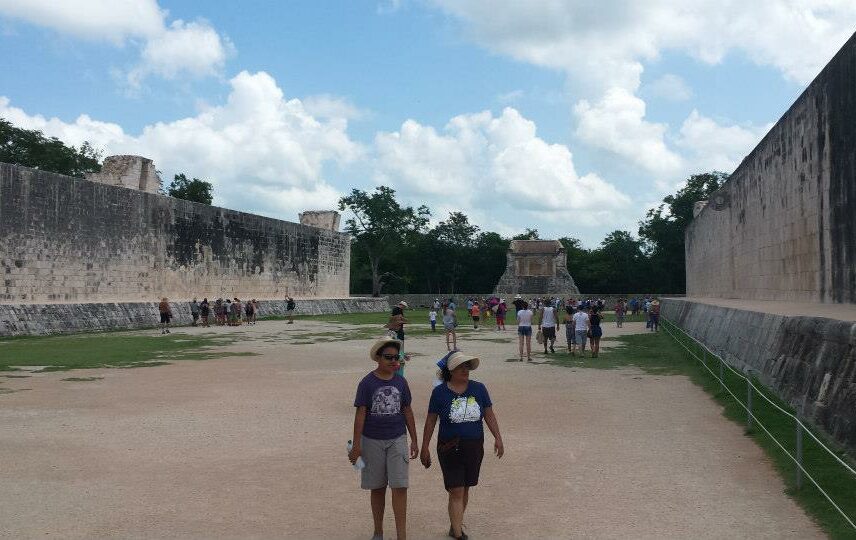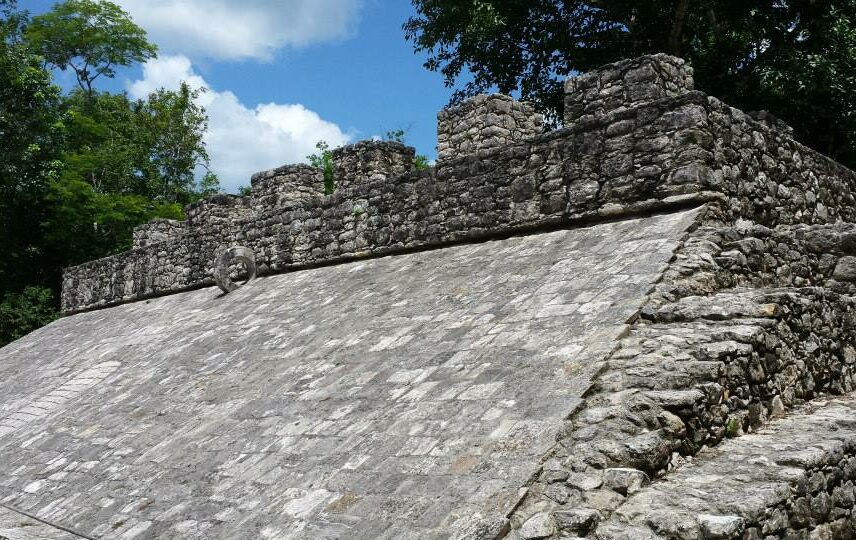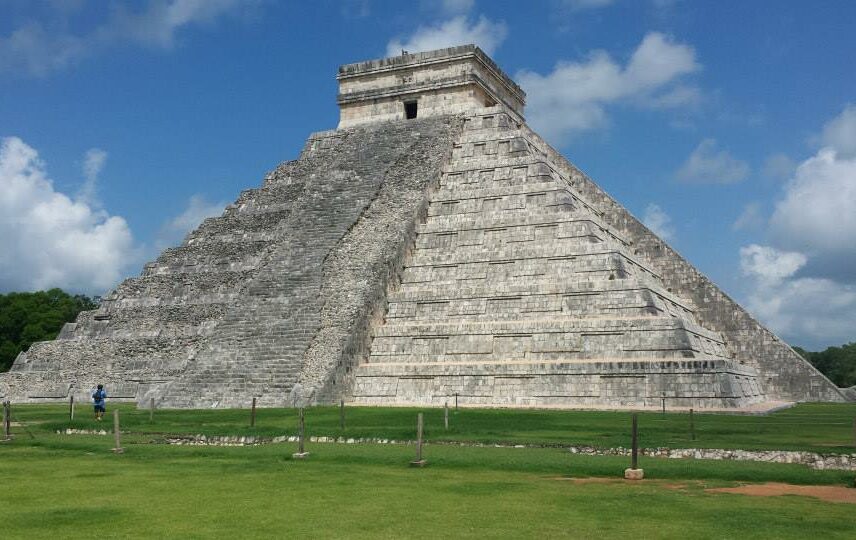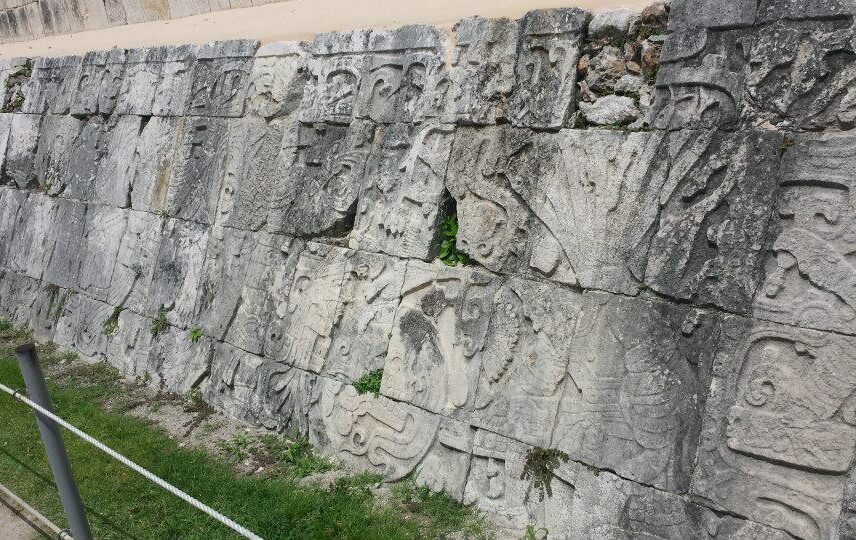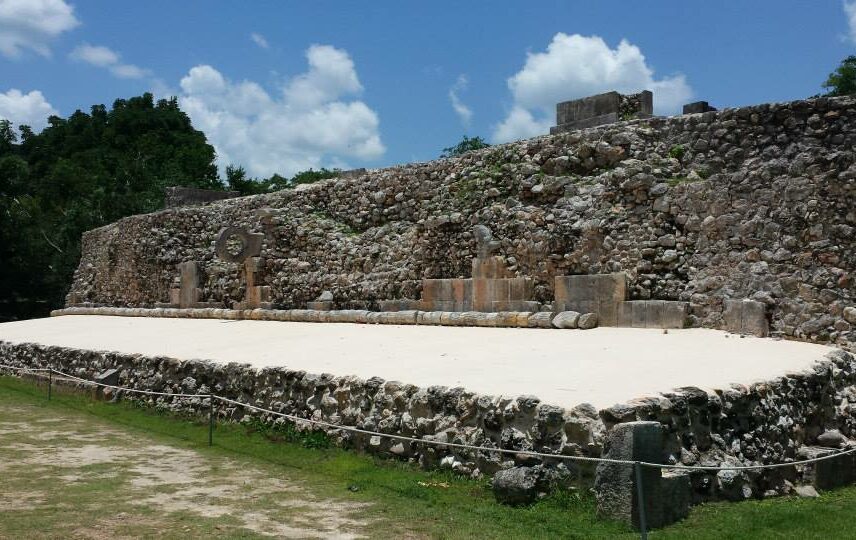By Aislinn Sanders and Pete Geraci
Photos by Pete Geraci
In Mexico, the Mesoamerican Ballgame Association is working to revive a 3,000-year-old team sport. The game, called ulama (or tlachitl in Nahuatl and pok-ta-pok in Mayan) is played by teams of two to four who hit a rubber ball, roughly 10 pounds in weight, using only their hips across specific points of the opposing team’s side of the court to score eight points first. The game was played both for fun and for spiritual purposes.
The sport, which was widely popular across ancient Mesoamerica, was banned in the 16th century following the arrival of Spanish conquistadors in the region. Conquistadors who viewed the sport witnessed players hitting a heavy ball using only their body and not sustaining injuries, perceiving them as witches and demon worshippers.
The oldest ballcourt discovered is located at Paso de la Amada, Guatemala, and dates to 1,400 B.C. In total, over 1,500 ballcourts have been excavated across Mesoamerica. The courts range in size and shape, with the largest known court being at Chichén Itzá. The rules of the game, too, differed across distinct regions. Courts were often placed in the center of the city close to other religious sites.
Recently, a ball court measuring 30-feet by 120-feet was completed in 2018 at the new Xochikalli community center in the Azcapotzalco neighborhood of Mexico City. The community center has gained attention from all over, including NPR.
We highly recommend watching the BBC Reel produced by Souleyman Messalti to watch the game being played by the association president, Reyna M. Puc Dzib and others.
